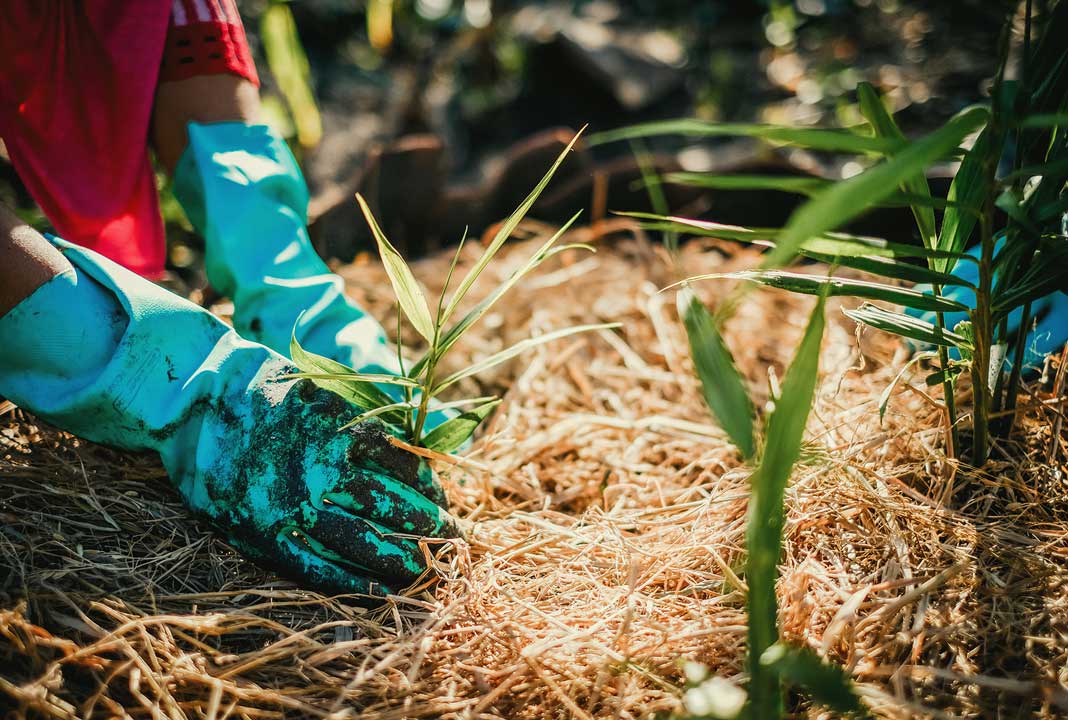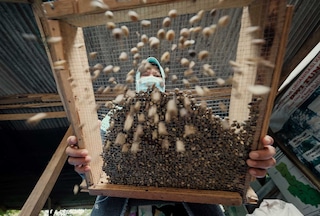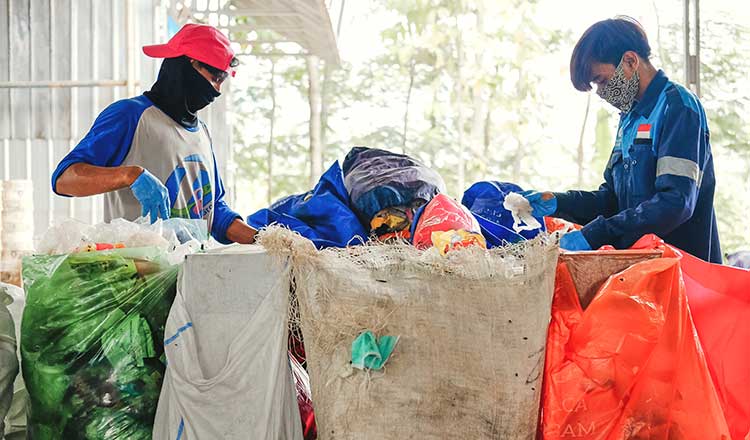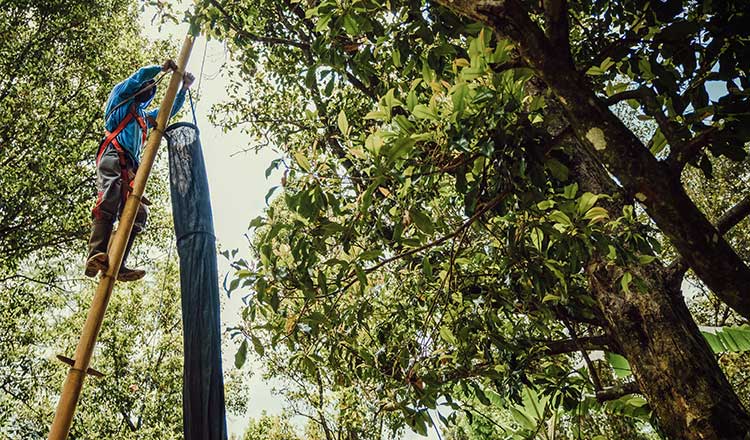| INTEGRATED REPORT 2020 |
Global scientific studies indicate that one million plant and animal species are at risk of extinction and thousands of species are already extinct. In particular, we have seen significant reductions in insect populations in the last generation. Since we collectively depend on the ecological services of biodiverse soil, land, forests, and water, these losses promise to have a profound adverse effect on the human population.
The right thing to do
From a societal perspective, biodiversity is essential to human life, with ecosystems contributing to human health, well-being, and the economy. Healthy natural habitats provide vital ecosystem services, such as pollination, biological pest control, and the regulation of nutrient cycles. Conversely, the unsustainable use of natural resources can lead to soil loss and ground instability, diminished amenity, and a loss of economic value. Often, it is the world’s most impoverished communities that are particularly vulnerable to the negative impacts of changes in climate, biodiversity, and ecosystem functions. We believe that companies have a critical role to play in tackling biodiversity loss by promoting conservation in partnership with organizations such as the International Union for Conservation of Nature (IUCN), Business for Nature, CSR Europe, and the World Business Council for Sustainable Development (WBCSD).
Biodiversity is a tier 2 topic within our strategic pillar Protecting the environment.

Our progress in 2020
read more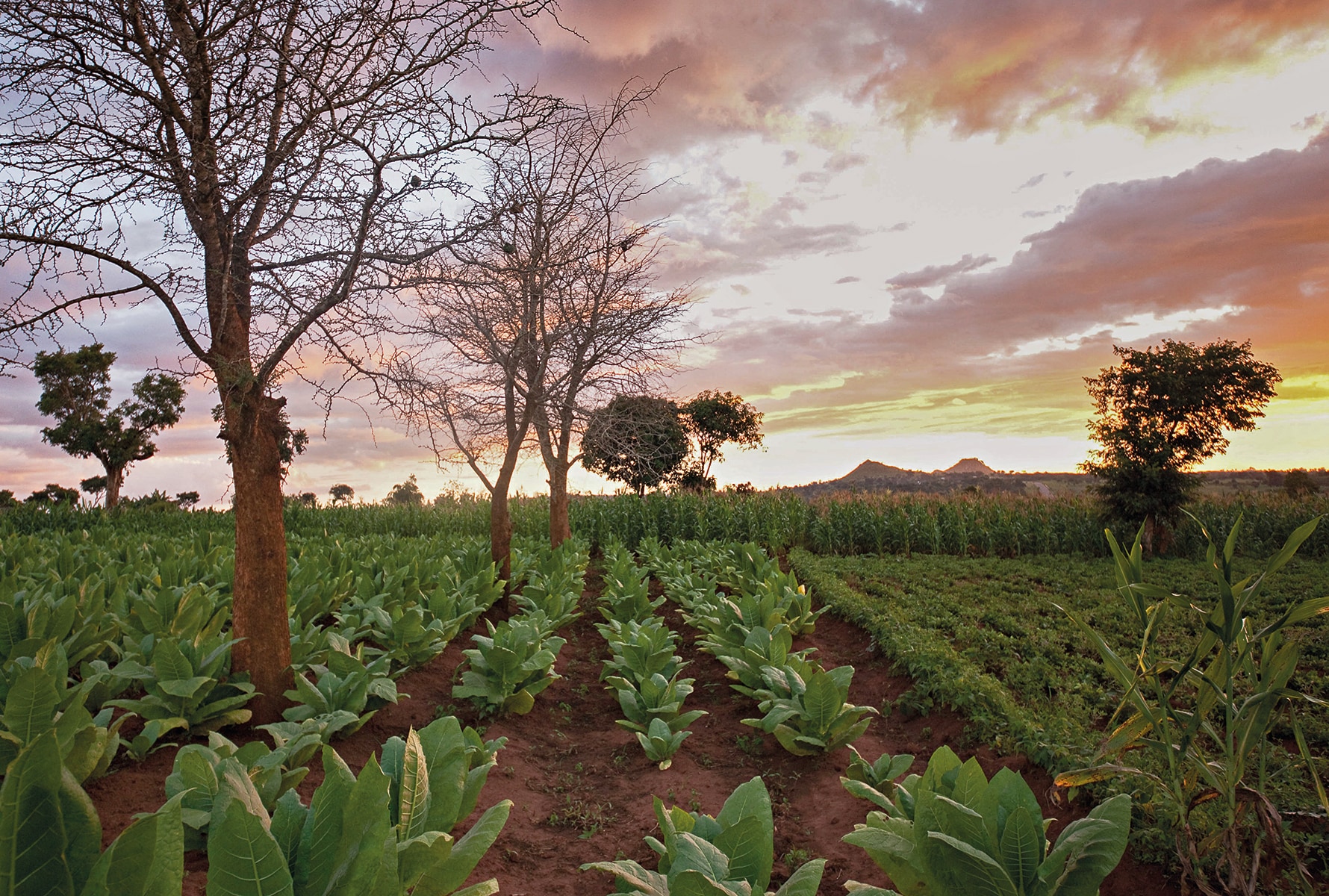
Topic description
The business case
There is a strong business case for PMI to play a role in the conservation of biological diversity. Biodiversity degradation and loss can increase production costs and disrupt key elements of our value chain, such as our sourcing activities and production methods. Hence, managing biodiversity is a way to manage risk. The topic is also increasingly considered by governments and policymakers, leading to the emergence of new regulatory frameworks in response to natural resource limits, ecosystem degradation, and biodiversity loss.
A specific risk we face is upstream in our agricultural supply chain; loss of biodiversity can lead to lower crop productivity, increasing production costs, and negatively impacting farmers’ livelihoods. These costs might include, for instance, remediation measures to improve soil biodiversity, protect crops, and adapt to climate change. In addition, our reputation could be eroded if we do not address key stakeholders’ concerns regarding major significant environmental issues.
Managing biodiversity is also an opportunity. By integrating biodiversity into our strategy and related programs, we can increase the long-term viability of our business—which depends on cost savings, operational efficiency, and the predictability and stability of agroecosystems and our entire supply chain—and improve our relationships with stakeholders.
Achieving our aims
Biodiversity has been identified as a material sustainability issue by our stakeholders, through our own assessments, and is expected to gain importance in the coming years.
Our Environmental Commitment requires PMI to jointly deliver biodiversity conservation programs with stakeholders, in particular suppliers, farmers, and environmental NGOs. Our Zero Deforestation Manifesto describes our ambition to enhance resilience in forest ecosystems that supply agricultural, paper, and pulp-based materials critical to our operations. We achieve this by applying our Responsible Sourcing Principles (RSP) and Good Agricultural Practices (GAP) and by leveraging opportunities to preserve natural capital stocks while creating value for society and our business. Also, our Water Stewardship Policy and strategy contribute to maintaining biodiversity and habitat health. Finally, our Anti-Littering Policy seeks to reduce the littering of our products.
The risk of biodiversity loss and natural capital depletion in the areas in which we operate has led to a clear risk-based approach covering our operations, as well as those of our supply chain partners. Our biodiversity initiatives occur in many parts of our business around the world. They are embodied in our corporate processes (e.g., through the adoption and implementation of Good Agricultural Practices by our suppliers) and in the field (e.g., habitat conservation through clear policies and guidance). Examples include training on sustainable curing fuels in all our tobacco flue-cured markets and measuring biodiversity indicators directly on farms through systematic sampling in Argentina. PMI’s activities related to biodiversity conservation and enhancement take many forms, but most are underpinned by engagement and collaboration.
In our tobacco supply chain, PMI’s GAP program requires biodiversity conservation in several ways and specifically embraces five measurable standards.1 Beyond sustainable fuel sourcing for tobacco curing, we are working with our suppliers to enhance biodiversity and natural habitats by restoring hundreds of hectares of forestland. Read more in Forest conservation.
Our biodiversity programs incorporate habitat conservation, water stewardship, soil conservation, climate change adaptation, waste management, and pest management. As one example, our program on integrated pest management guides our suppliers and farmers to protect the natural capital that supports their livelihoods by reducing the use of crop protection agents. Beyond this, we do not purchase tobacco containing agrochemical residues that indicate the use of highly hazardous pesticides (HHPs), as defined by the World Health Organization (WHO) and the UN’s Food and Agriculture Organization (FAO).
1Areas under tobacco cultivation are managed sustainably to conserve biodiversity (GAP 2.5), supported by the prevention of freshwater pollution (GAP 2.1), the preservation or enhancement of soil fertility (GAP 2.2), waste management to prevent ground and air pollution (GAP 2.3), and energy and materials (firewood, barn materials) causing zero damage to ecosystems (GAP 2.4).
Genetically modified tobacco
read moreThe governance arrangements guiding our management of environmental impacts also apply to our biodiversity work. In our tobacco supply chain, we leverage the close relationship between farmers and our 2,675 field technicians to accelerate the achievement of our biodiversity goals.
We also rely on the contributions of a broad set of stakeholders, including local communities, suppliers, the business community, NGOs, and research partners. We conduct a global biodiversity mapping and benchmarking assessment alongside our deforestation risk assessment to plan actions to meet our targets.

Our progress in 2020
read more
Performance metrics
view dataThis online content about our Integrated Report should be read in conjunction with PMI’s 2020 Integrated Report. The information and data presented here cover the 2020 calendar year or reflect status at December 31, 2020, worldwide, unless otherwise indicated. Where not specified, data come from PMI estimates. Please also refer to 'About this report' on page 3 of the 2020 Integrated Report for more information. Aspirational targets and goals do not constitute financial projections, and achievement of future results is subject to risks, uncertainties and inaccurate assumptions, as outlined in our forward-looking and cautionary statements on page 145. In the 2020 Integrated Report and in related communications, the terms “materiality,” “material,” and similar terms, when used in the context of economic, environmental, and social topics, are defined in the referenced sustainability standards and are not meant to correspond to the concept of materiality under the U.S. securities laws and/or disclosures required by the U.S. Securities and Exchange Commission.
